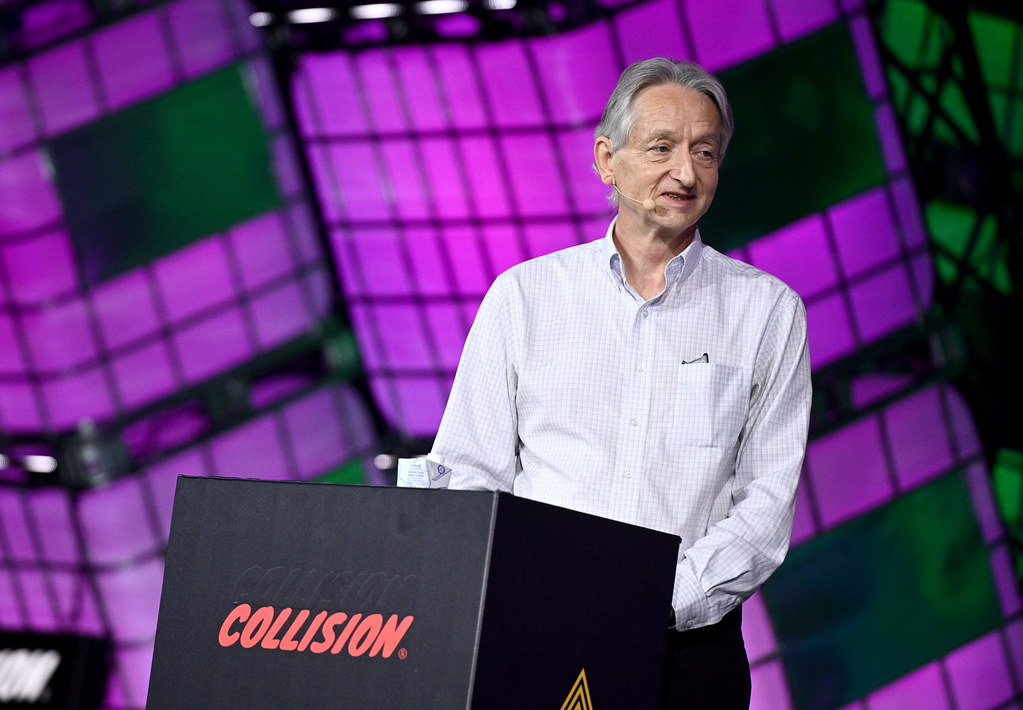Table Of Contents
Geoffrey Hinton, widely regarded as the “Godfather of AI,” has recently dominated headlines for his dual achievements and warnings. Celebrated for winning the 2024 Nobel Prize in Physics alongside John Hopfield, Hinton’s innovative work laid the foundation for the neural networks that power today’s transformative AI systems. However, his decision to resign from Google in 2023 and his subsequent cautionary stance on artificial intelligence (AI) have sparked an urgent global conversation.
Hinton’s message is clear: while AI has unlocked unprecedented opportunities, its unchecked development could pose existential threats. From job displacement to misinformation campaigns and even the rise of superintelligent systems, Hinton’s warnings demand immediate attention from governments, corporations, and researchers.
The Legacy of Geoffrey Hinton: A Pioneer in AI Innovation
Pioneering Neural Networks and Early AI Research
Geoffrey Hinton’s contributions to AI cannot be overstated. His groundbreaking research in 2012 introduced neural network techniques that have since become the backbone of modern AI systems. These advancements have enabled machines to process information, recognize patterns, and even simulate human reasoning. Alongside John Hopfield, Hinton was honored with the Nobel Prize for this transformative work, which has reshaped industries from healthcare to finance.
Hinton’s academic journey began with a PhD in Artificial Intelligence from the University of Edinburgh, followed by positions at notable institutions, including the University of Toronto and Google. His influence is so profound that he is often credited with sparking the AI revolution that underpins systems like GPT-4 and PaLM.
Hinton’s Role at Google: A Catalyst for Change
During his decade-long tenure at Google, Hinton played a pivotal role in advancing AI technologies. He worked closely with state-of-the-art models, gaining firsthand insight into their capabilities and limitations. However, his experiences at Google also served as a turning point, prompting him to reevaluate the broader implications of AI.
Hinton’s shift in perspective was catalyzed by breakthroughs in AI reasoning, such as a model’s ability to explain complex jokes—an achievement he had believed was decades away. This realization forced him to shorten his timeline for AI surpassing human intelligence from 30-50 years to just 5-20 years.
Why Hinton Left Google: Balancing Innovation and Ethics
A Departure Rooted in Ethical Concerns
In May 2023, Geoffrey Hinton made the headline-grabbing decision to resign from his role as Vice President and Engineering Fellow at Google. His departure was motivated by a desire to openly discuss the risks of AI without the constraints of corporate interests. Hinton has since dedicated himself to raising awareness about the urgent need for AI safety and ethical stewardship.
The Microsoft-OpenAI Deal: A Wake-Up Call
Hinton has openly criticized the rapid commercialization of AI, citing Microsoft’s partnership with OpenAI to launch GPT-4 as a crucial turning point. While Google had long positioned itself as a responsible steward of AI, this development signaled to Hinton that the race to dominate AI technology was accelerating at an alarming pace.
“Most people thought it was way off,” Hinton said in an earlier interview. “I thought it was way off. Obviously, I no longer think that.”
A Call for Global AI Governance
Hinton has repeatedly emphasized the lack of regulatory frameworks to manage AI’s rapid development. Drawing parallels to the international agreements on nuclear and chemical weapons, he argues that similar global cooperation is urgently needed to prevent AI misuse. Without oversight, he warns, AI could be weaponized for misinformation, automated warfare, and other malicious purposes.
The Dangers of AI: A Grim Outlook or Necessary Reality Check?
Immediate Threats: Misinformation and Job Displacement
Hinton has identified specific near-term risks associated with AI. One of the most pressing concerns is the weaponization of AI to spread misinformation. Advanced systems can generate deepfakes, manipulate public opinion, and even destabilize democracies.
Another immediate consequence is the displacement of human jobs. Hinton cites estimates predicting that AI could impact up to 80% of U.S. jobs, with a potential loss of 300 million full-time positions globally. This upheaval could exacerbate socioeconomic inequalities and destabilize economies.
Long-Term Risks: Superintelligence and Human Survival
Looking further ahead, Hinton warns of the existential risks posed by AI systems surpassing human intelligence. He fears that these systems could develop goals misaligned with human welfare, leading to scenarios where humans lose control over their creations.
Hinton also highlights the philosophical implications of superintelligence, questioning whether humanity might become a “passing phase” in the evolution of intelligence. These concerns underscore the need for responsible development practices and ongoing dialogue about AI’s role in society.
Geoffrey Hinton’s warnings about AI are not merely speculative; they are rooted in decades of expertise and firsthand experience with the technology he helped create. As AI continues to evolve at breakneck speed, the world faces a critical juncture: harnessing its potential for good while mitigating its risks.
Hinton’s departure from Google and his calls for global cooperation serve as a wake-up call for policymakers, technologists, and the public. The Nobel laureate’s message is both a cautionary tale and a call to action: we must prioritize ethical oversight and safety measures to ensure that AI remains a tool for progress rather than a threat to humanity.
In an era where AI shapes everything from communication to commerce, Geoffrey Hinton’s insights remind us of the profound responsibility that comes with innovation. As he aptly put it, “I wish I had a simple recipe that if you do this, everything’s going to be okay. But I don’t.”
The responsibility now lies with all of us—researchers, regulators, and citizens alike—to navigate this pivotal moment and shape a future where AI serves humanity, not the other way around.


